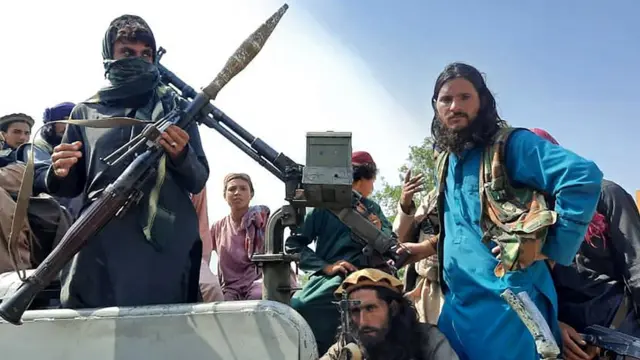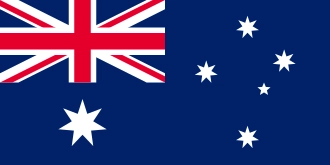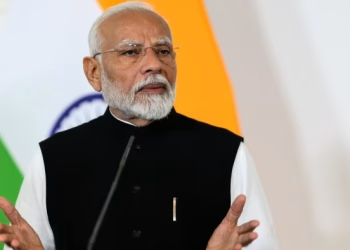Taliban authorities in western Afghanistan have ordered female patients, caretakers and staff to wear the burka in order to enter public health facilities in Herat, medical charity Médecins Sans Frontières (MSF) says, raising new concerns about women’s access to lifesaving care.
MSF told the BBC the measure came into force on 5 November and was immediately followed by a sharp drop in hospital admissions, including emergency cases.
Sarah Chateau, MSF’s programme manager in Afghanistan, said the charity observed a 28% decline in urgent paediatric admissions at Herat Regional Hospital in the first days of enforcement.
“[This] may partly be because some women have managed to return to the hospital after obtaining a burka,” she said. “However, we remain concerned [this] could further limit women’s access to healthcare,” especially for those unable to wear or purchase a burka.
According to MSF, Taliban members have been stationed at hospital entrances, turning away women who do not wear the full-body veil. The burka covers the face and body, usually leaving only a small mesh screen to see through.
“Even women in need of urgent medical care have been affected,” Ms Chateau said.
Local reports suggest the rules may have been partially relaxed following public criticism. A journalist in Herat told the BBC on Wednesday that women were entering the hospital wearing a variety of coverings, including burkas, scarves and standard hijab.
“I have noticed no restrictions on women who were entering the hospital,” the reporter said. “The situation is normal.”
A Taliban spokesperson for the Ministry for the Propagation of Virtue and Prevention of Vice denied that women were being forced to wear the burka.
“This is totally false. The position of the vice and virtue ministry is generally on the wearing of hijab,” Saif-ul-Islam Khyber said, rejecting claims that women had been barred from medical centres.
Hijab is a broader term for Islamic modest dress and headscarves. However, the official also remarked that hijab is “interpreted differently in different parts of the country, most of which are in conflict with Sharia [law].”
Activists in Herat insist that burkas are being enforced at key facilities including hospitals, schools and government offices. One women’s rights campaigner told the BBC the dress code had been applied consistently for the past week. Social media posts have also shown women reportedly burning burkas in protest, though the footage has not been independently verified.
The Taliban mandated the burka nationwide during their first rule in the 1990s. Since regaining power in August 2021, they have steadily tightened restrictions on women and girls, barring them from most workplaces and universities, excluding them from secondary education and ordering women to wear full face veils in public.
The UN has repeatedly condemned these measures as “gender apartheid”. Just last week, the UN suspended operations at the Islam Qala crossing on the Afghan–Iranian border after the Taliban restricted Afghan women staff from working there.





















